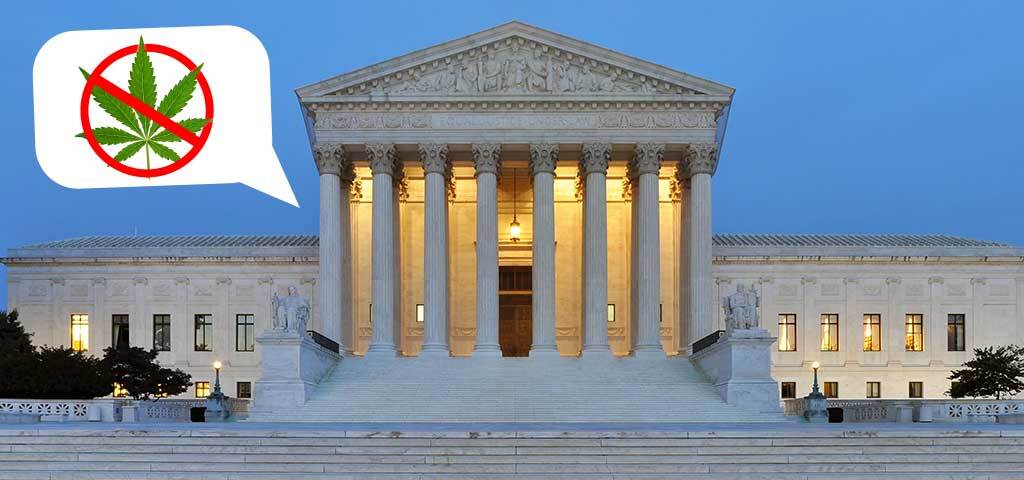The U.S. Supreme Court declined to hear a high-profile cannabis case that challenged the constitutionality of federal cannabis prohibition. Advocates behind the case said they were disappointed, but not surprised.
Supreme Court Won’t Hear Cannabis Case Challenging Federal Prohibition

Full story continued below.
Advertisement
The U.S. Supreme Court has declined to hear the case challenging the constitutionality of federal prohibition and the Drug Enforcement Agency’s Schedule I classification. The decision likely marks the end of the road for the case.
Previous rulings by a U.S. District Court and Second Circuit Court of Appeals had previously dismissed the case, ruling that the plaintiffs – comprised of medical cannabis patients – had not first sought administrative relief such as petitioning the DEA to reclassify cannabis. The case had argued that those mechanisms are “illusory.”
When Attorneys Michael Hiller and Joseph Bondy asked the nation’s highest court to hear the case in August, they said the previous rulings directed plaintiffs “to proceed with an administrative review process doomed to failure.”
Sebastien Cotte, whose son Jagger was a plaintiff in the case, told Marijuana Moment – which first reported the denial – that while the court’s decision is “not surprising … it is still very disappointing.” However, he added that the case was “groundbreaking” because a federal judge said, on the record, “that it is undeniable that cannabis has medical properties.”
NORML Legal Counsel Keith Stroup agreed about the “unsurprising” outcome.
“This result is not altogether surprising. Courts have rarely provided relief to those of us who believe that marijuana prohibition violates our civil and Constitutional liberties. It is Congress that imposed the federal prohibition of marijuana and ultimately it is up to Congress to repeal this destructive and discriminatory policy.” – Stroup in a statement
A Federal District Court in Sacramento, California considered similar arguments in 2014 but ultimately made the same ruling that plaintiff’s needed to seek relief via administrative mechanisms and that they had not shown Congress acted irrationally when classifying cannabis as a Schedule I drug.
Get daily news insights in your inbox. Subscribe
End